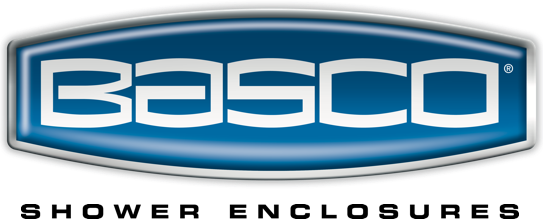How Materials Impact Shower Door Options
Choosing the perfect material for your tub or shower is important when designing your dream bathroom. Today’s acrylic and gel-coat fiberglass modules provide a variety of options to achieve the look you want and to enhance your bathing experience. Let’s consider the differences and how your shower door choice is affected:
Acrylic
- Acrylic is an extremely durable bath and shower material. With its strong acrylic surface and composite backing material, it’s resistant to the rigors of everyday life — no cracks, no chips.
- Depending on use, acrylic may require less maintenance than other bath materials. Its non-porous surface makes cleaning with a non-abrasive cleanser simple and easy.
- Many modern acrylic modulars have structural ribs behind the base for additional support.
- Acrylic retains its color, luster and showroom condition longer. Because its color goes through the thickness of the material, it’s resistant to dulling and fading.
- Acrylic warms and cools faster than other tub materials, so in a warm room, an acrylic tub is warm to the touch. During a bath, an acrylic tub will keep water warmer for a longer amount of time.
- Acrylic modules that install straight to studs using screws are appropriate substrates for any 3/16” or 1/4” glass shower enclosure.
- Acrylic shower walls that install by gluing panels to drywall are NOT an appropriate substrate on which to install any shower door.

Fiberglass
- Gelcoat is short for “gel-coat fiberglass reinforced polyester,” more popularly known as “fiberglass.” The “gel-coating” is a thin layer of smooth, shiny material that lays on top of the fiberglass. It is what gives the material its smooth finish and its color. The fiberglass reinforced polyester lies beneath, and it is what gives the material its strength.
- Gelcoat bathing material is lightweight and easy to maneuver. For its weight, it is extremely strong, flexible and durable.
- With proper cleaning and upkeep, gelcoat tubs will keep their color and luster for a long time. Because gelcoat surfaces are slightly more porous than Acrylic surfaces, they can stain over time if not properly cleaned and maintained.
- Gelcoat fiberglass modules that install straight to studs using screws are appropriate substrates for any 3/16” or 1/4” glass shower enclosure.

Looking for tips with fiberglass or acrylic materials?
Check out our reference and installation guide.
Acrylic & Fiberglass GuideReady to Find the Perfect Door for Your Space?
Get step-by-step assistance with our product selector now!
Get Started